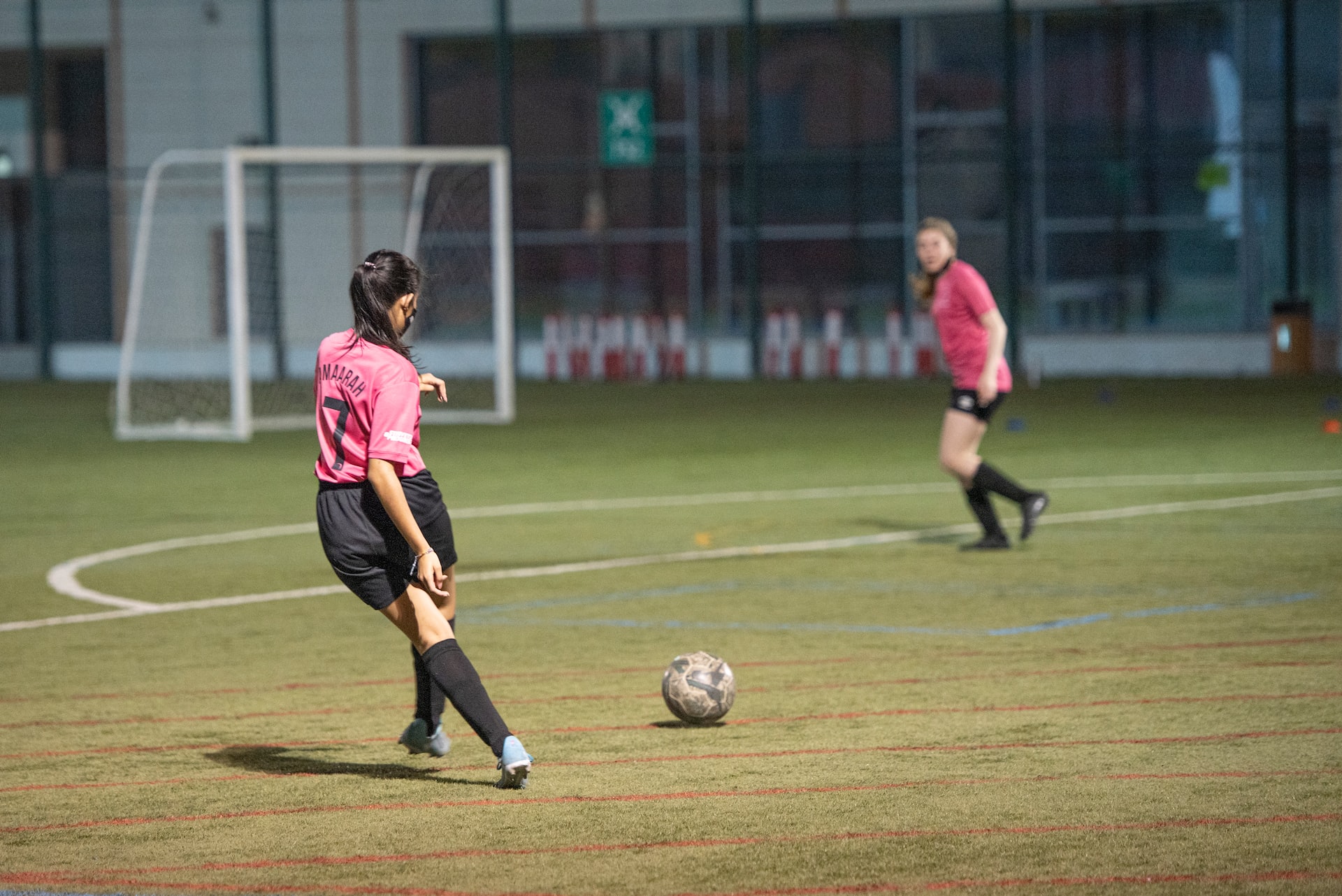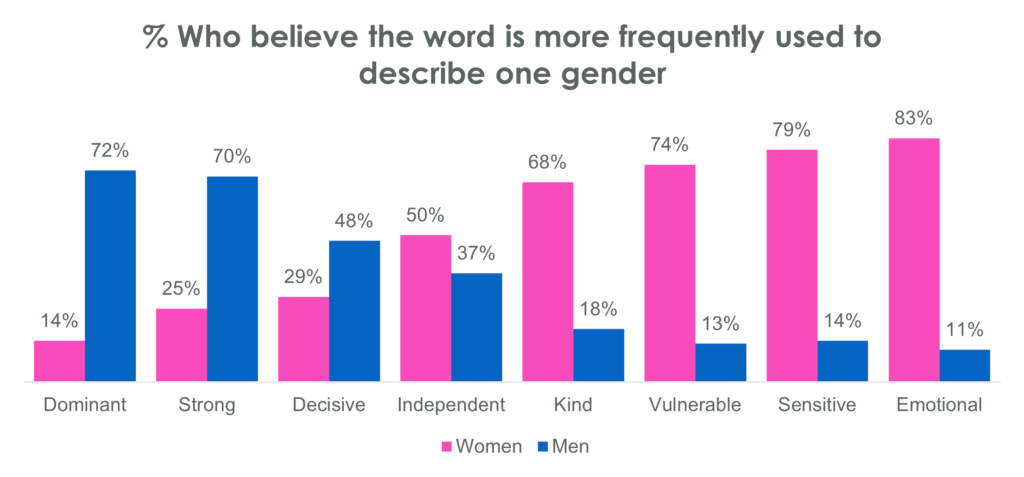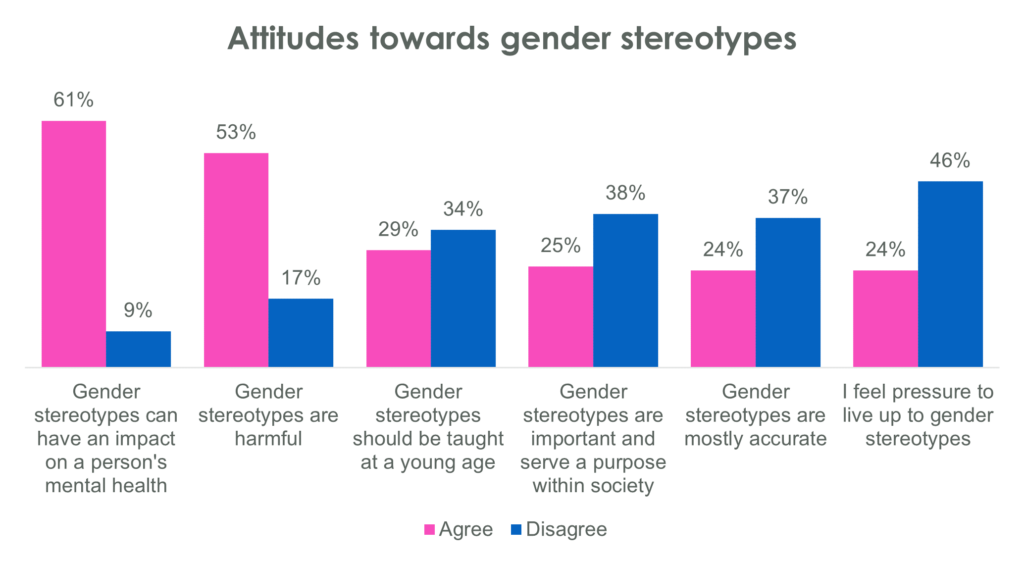Emotional Women & Dominant Men: UK Social Attitudes Towards Gender Stereotypes

Gender stereotypes are defined as preconceived, usually generalized views about how members of a certain gender do or should behave, or which traits they do or should have. These stereotypes can perpetuate inequalities and be harmful through limiting someone’s ability to develop personal skills, pursue professional careers or even make individual choices about their lives. In recent years, British society has made substantial progress towards greater gender equality and abandoning harmful gender stereotypes, so where do Brits stand on the issue today and do their behaviours reflect their attitudes?
The language we use suggests Gender Stereotypes still exist
Significant differences continue to exist in the language used to describe men and women. Over four in five Brits think that the word ‘emotional’ is more frequently used to describe women and a similar proportion think women are described as ‘sensitive’. Contrastingly, Brits say ‘dominant’ and ‘strong’ are more frequently used to describe men.

Three quarters of Brits believe gender stereotypes exist and of these, three in five say they have experienced gender stereotyping themselves. Over half of Brits believe gender stereotypes exist within society and over two in five believe they exist within media, the workplace, advertising, and family.
In terms of experience, these stereotypes appear to be most prevalent within the workplace, wider society families and within schools/education..
Around one in five say they have personally experienced stereotyping either media or advertising (20%).
Despite their widespread existence and impact, there’s little concern about Gender Stereotypes
It is clear many people are living in gendered environments and are affected by traditional male or female stereotypes day in day out – however, just one in five say they are concerned about the issue. Despite this, over three in five recognise that gender stereotypes can have an impact on a person’s mental health, over half say gender stereotypes are harmful and a quarter say they feel pressure to live up to gender stereotypes. Almost two in four think that Gender stereotypes are important and serve a purpose within society.

Virgin Atlantic recently introduced a gender-neutral uniform policy in which their crew, pilots and ground staff can wear whichever of their uniforms they feel most comfortable in. Almost half of Brits believe that all companies should work to become more gender neutral and think having a gender neutral uniform policy is important. Over half recognise that having a gender neutral policy can make people feel included and comfortable, however two in five think that gender neutral uniform policies can be harmful to society.
Gender Stereotypes are more impactful amongst select groups of people
Compounded and intersecting with other stereotypes, gender stereotypes can have a disproportionate negative impact on certain groups of people. Despite men and women now having the same rights under UK law, women still experience significant inequalities in many different areas of life. So it is perhaps unsurprising that gender, age, and sexuality are all correlated with their views and experiences of gender stereotyping; with women, younger people and LGBTQ+ individuals all being more likely to have experienced gender stereotyping and show greater concern and openness towards the issue.
Gender stereotypes are complex and multifaceted, but their existence and impact cannot be disputed. We all have responsibility to build a more inclusive and accepting society. By challenging gender roles and stereotypes, we can build a brighter future where everyone is free to choose the direction their life takes
Read the full report here.
Written by Dan Jacobs, Senior Research Executive.




